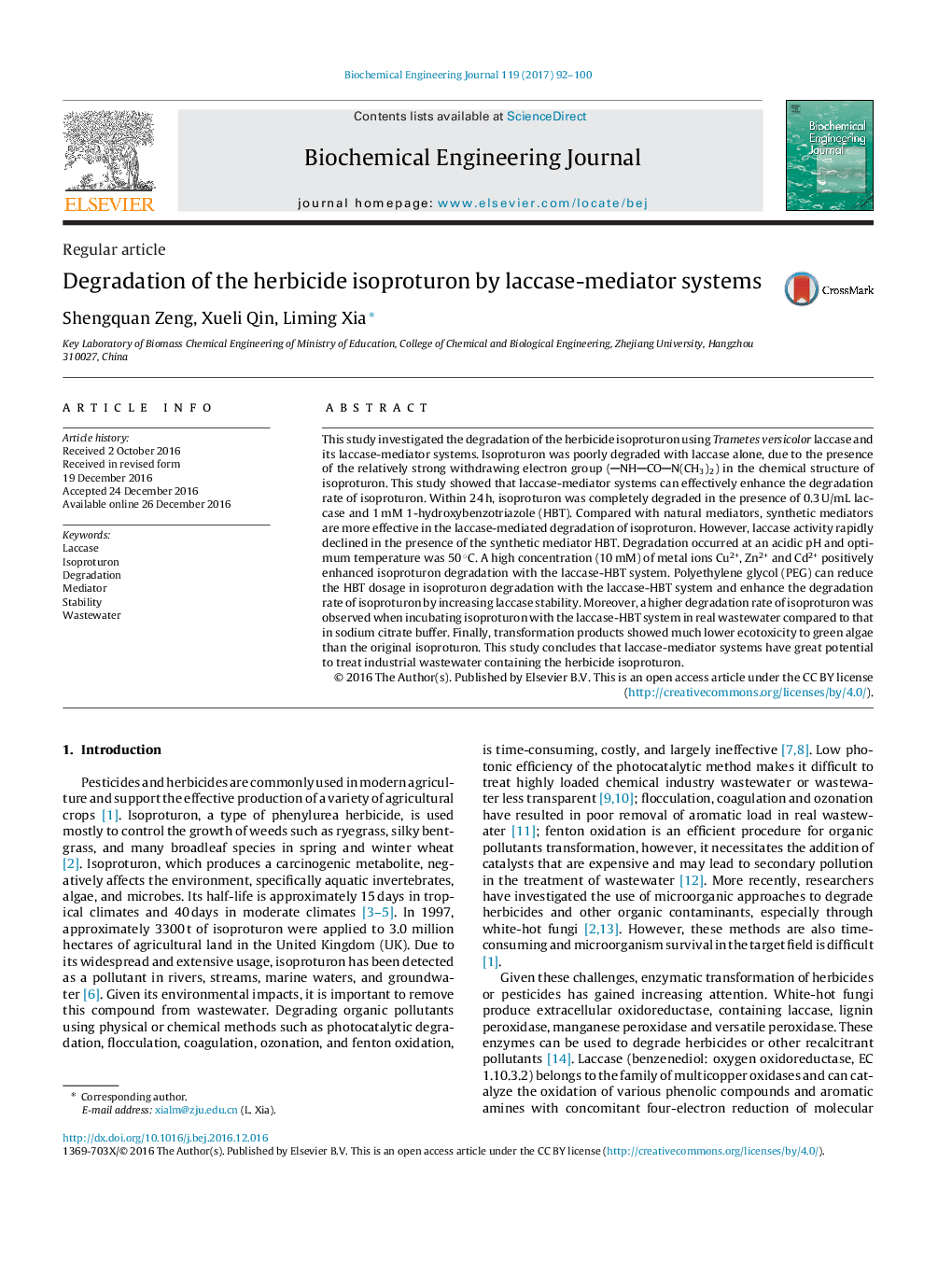| Article ID | Journal | Published Year | Pages | File Type |
|---|---|---|---|---|
| 6450424 | Biochemical Engineering Journal | 2017 | 9 Pages |
â¢Isoproturon can be completely degraded by laccase-mediator systems.â¢Synthetic mediators are more effective for the isoproturon degradation.â¢Mediators can affect laccase stability in the degradation of isoproturon.â¢PEG can reduce the HBT dosage and enhance the degradation rate of isoproturon.â¢A higher degradation rate of isoproturon was observed in real wastewater.
This study investigated the degradation of the herbicide isoproturon using Trametes versicolor laccase and its laccase-mediator systems. Isoproturon was poorly degraded with laccase alone, due to the presence of the relatively strong withdrawing electron group (NHCON(CH3)2) in the chemical structure of isoproturon. This study showed that laccase-mediator systems can effectively enhance the degradation rate of isoproturon. Within 24 h, isoproturon was completely degraded in the presence of 0.3 U/mL laccase and 1 mM 1-hydroxybenzotriazole (HBT). Compared with natural mediators, synthetic mediators are more effective in the laccase-mediated degradation of isoproturon. However, laccase activity rapidly declined in the presence of the synthetic mediator HBT. Degradation occurred at an acidic pH and optimum temperature was 50 °C. A high concentration (10 mM) of metal ions Cu2+, Zn2+ and Cd2+ positively enhanced isoproturon degradation with the laccase-HBT system. Polyethylene glycol (PEG) can reduce the HBT dosage in isoproturon degradation with the laccase-HBT system and enhance the degradation rate of isoproturon by increasing laccase stability. Moreover, a higher degradation rate of isoproturon was observed when incubating isoproturon with the laccase-HBT system in real wastewater compared to that in sodium citrate buffer. Finally, transformation products showed much lower ecotoxicity to green algae than the original isoproturon. This study concludes that laccase-mediator systems have great potential to treat industrial wastewater containing the herbicide isoproturon.
